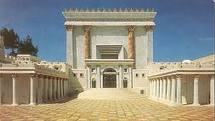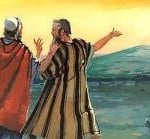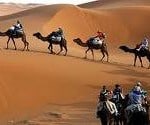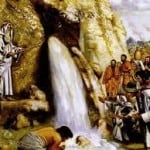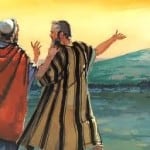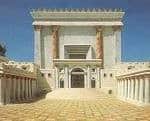 Moshe Rabbeinu ( Moses) is the man who walked between Heaven and Earth. He is the man who spoke to G-d as men speak to each other, panim el panim, that is to say, “face to face.” This is the man who walked into the fiery mountain and felt the Glory of G- d pass over him. This man at the end of his life had but one request, one final plea:
Moshe Rabbeinu ( Moses) is the man who walked between Heaven and Earth. He is the man who spoke to G-d as men speak to each other, panim el panim, that is to say, “face to face.” This is the man who walked into the fiery mountain and felt the Glory of G- d pass over him. This man at the end of his life had but one request, one final plea:
Pray let me cross over and see the good land that is on the other side of the Jordan , this good mountain and the Levanon” (Deuteronomy 3:25).
